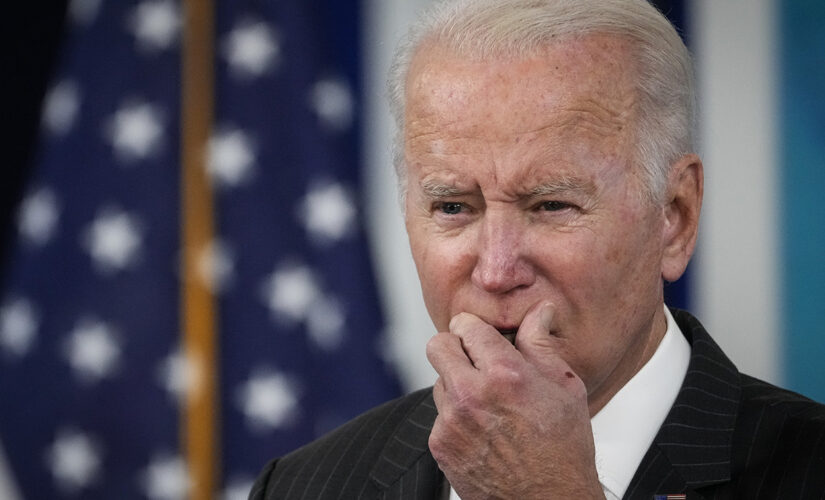While congressional Democrats work overtime to pass a massive social spending and human infrastructure package, some of the most recent public opinion polling indicates the bill may not have the support of most Americans.
And while specific provisions included in the overall proposal appear to be popular with much of the public, surveys suggest that many people feel the measure won’t improve the economy or positively impact their own lives.
The push by congressional Democrats, who hold razor thin majorities in the House of Representatives and Senate, to pass their spending bill along party lines using a parliamentary process known as reconciliation, comes at the same time they’re trying to approve in the House a separate infrastructure bill that passed the Senate with bipartisan support.
HERE’S WHAT’S IN THE DEMOCRATS’ $1.75 TRILLION SPENDING BILL
Americans were divided (34% to 34%) on whether both bills would help or hurt the economy, according to an ABC News/Ipsos poll conducted Oct. 29-30. About a quarter of those surveyed were unsure of how the measures, which cost roughly $3 billion combined, would impact the nation’s economy.
President Biden arriving to meet with House Democrats at the U.S. Capitol regarding the twin spending bills Oct. 28.
(Drew Angerer/Getty Images)
But when it comes to their own personal finances, more Americans say they’re concerned about potential ramifications from the spending packages. The poll indicated that a plurality of respondents, or about 32%, said the bills will hurt people like them if they become law, compared to a quarter who thought the measures would help them. Nearly a fifth questioned said the bills would make no difference in their lives, with a quarter not sure.
Even Democrats surveyed were lukewarm about the impact of the spending bills: Only about half, or roughly 47%, said the measures would help people like them. A quarter of Democrats said the bills would have no discernible effect for people like them, and about two in 10 said they didn’t know how it would impact their lives.
Nearly two-thirds (64%) of Republicans said the bills would hurt people like them, with about three in 10 (29%) independents agreeing.
The survey also suggested that many Americans were unsure what exactly will be included in the two pieces of legislation. About seven in 10 said they knew just some or little to nothing about what’s in both bills. Only 31% said they know a great deal or good amount of what’s in the measures.
CLICK HERE FOR THE LATEST FOX NEWS POLLING
After two months of intra-party negotiations between the White House and congressional Democrats, President Biden last week unveiled what was in the slimmed-down framework of what his administration calls the “Build Back Better” package.
House Rep. Joe Neguse, D-Colo., speaking after a House Democratic Caucus meeting at the U.S. Capitol Nov. 2.
(Allison Shelley/Getty Images)
The proposal allocates $1.75 trillion in new spending for initiatives like universal pre-kindergarten, a one-year expansion of the child tax credit, expanded Medicaid and clean energy tax credits, among other things. It notably excludes progressive priorities such as tuition-free community college, paid family leave and Medicare coverage of vision and dental. The package also included sizable funding for new initiatives to combat climate change.
The $1.2 trillion bipartisan infrastructure bill already passed by the Senate includes $550 billion in new funding for traditional projects like roads, bridges and transit.
The most recent Fox News national poll, conducted Oct. 16-19 ahead of the president’s announcement, also indicated a lack of strong support for the Democrats’ spending measures.
House Speaker Nancy Pelosi, D-Calif., at the Capitol on Thursday.
(AP Photo/J. Scott Applewhite)
When asked whether the $3.5 trillion in new spending that Democrats proposed (the working price tag at that time, which has since been halved) would impact the economy, four out of 10 said it would hurt the economy, with 38% saying the initiatives would help and one out of five saying they would have no impact.
CLICK HERE TO GET THE FOX NEWS APP
Two-thirds of Democrats questioned said the spending would help, while two-thirds of Republicans said it would hurt. A quarter of independents questioned said the spending would help the economy, with 36% saying it would hurt and 35% not sure.
The push by Democrats to pass the spending measures also comes as most recent polling indicates heightened concerns among Americans regarding the rise in inflation in recent months.




